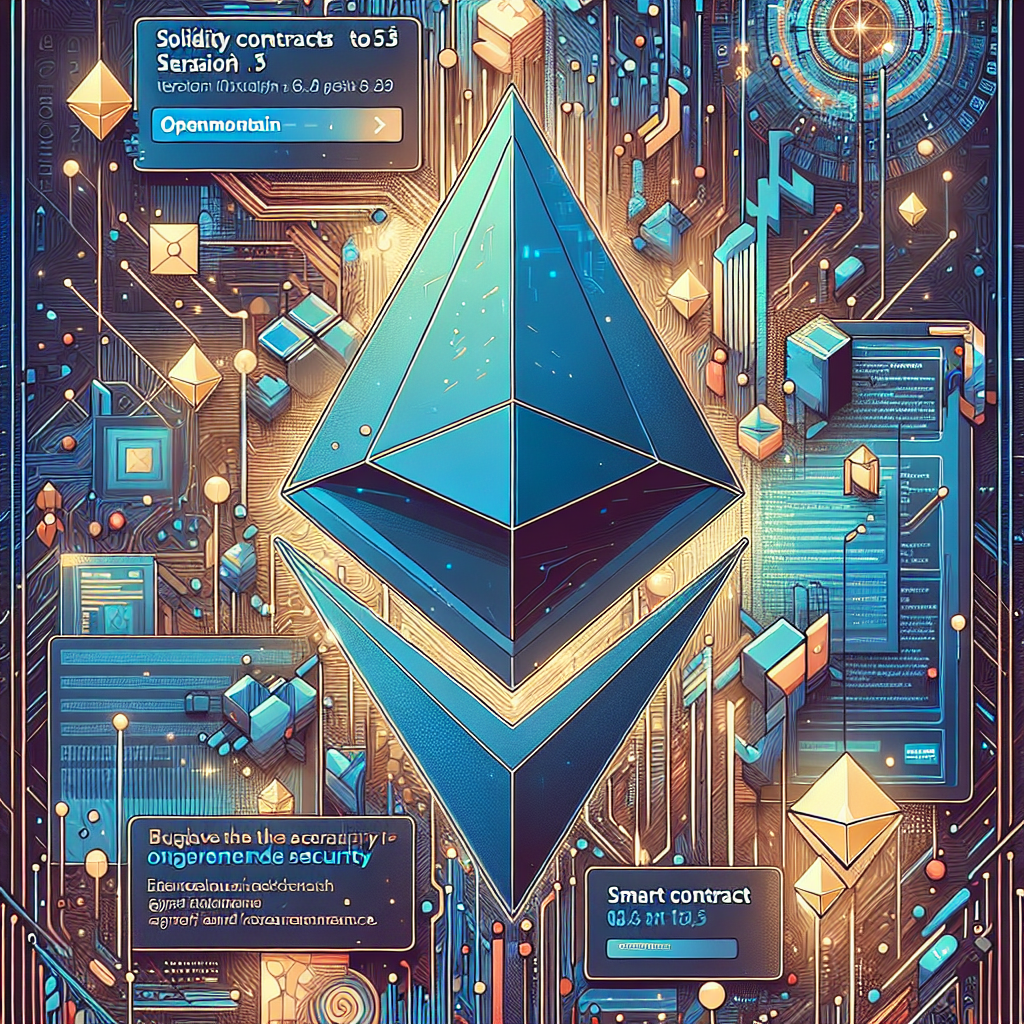DeFi
OpenZeppelin Unveils Solidity Contracts v5.3, Elevating Ethereum Smart Contract Security and Governance

OpenZeppelin has unveiled significant enhancements to its popular suite of development tools aimed at bolstering security for Ethereum smart contracts. The latest iteration of its trusted library, Solidity Contracts v5.3, represents a pivotal advancement for developers grappling with the complexities of decentralized application (dApp) creation.
As an established provider of secure smart contracts across Ethereum and various other blockchain platforms, OpenZeppelin continues to play an instrumental role in shaping the landscape of decentralized finance (DeFi) and non-fungible tokens (NFTs). Its tools are revered for facilitating safe and efficient contract execution, earning widespread trust among developers and enterprises alike.
The release of version 5.3 is timely, addressing several tangible challenges prevalent in the current ecosystem, including governance hurdles, elevated gas fees, and the necessity for adherence to evolving standards. These enhancements not only improve security but also offer developers greater flexibility in creating decentralized autonomous organizations (DAOs), token economies, and on-chain decision-making frameworks.
One of the standout features introduced in this update is the overhaul of the governance framework. The introduction of components such as GovernorWithSuperQuorum and ProposalGuard equips developers with enhanced tools for managing the decision-making processes intrinsic to DAOs. By using these modules, projects can exert increased control over governance mechanisms, enabling more rigorous frameworks for community decisions.
The Super Quorum mechanism offers the capacity to establish heightened participation requirements for specific governance proposals. This strategic change means that significant changes cannot be effectuated with a low voter turnout, thereby enhancing the integrity of the voting process. Meanwhile, the ProposalGuard plays a crucial role in filtering or rejecting potentially harmful proposals before they can be enacted, safeguarding DAOs against malicious intent or unintentional errors.
This upgrade comes at a critical juncture where many DAOs are under growing scrutiny regarding both voter engagement and the quality of proposals being put forth. As such, these tools will serve to fortify the governance structures that underlie these organizations, ensuring they can navigate the complexities of decision-making more effectively.
Alongside governance improvements, OpenZeppelin has introduced support for the experimental ERC-6909 token standard. This new approach to multi-token systems affords developers greater gas efficiency and flexibility, catering to the demands of various applications, particularly in gaming and metaverse environments where multiple token types must operate seamlessly within a single contract.
As the digital landscape continues to mature, the introduction of ERC-6909 is positioned to facilitate more intricate token interactions, reinforcing the capabilities of developers as they seek to innovate and build applications capable of thriving in an ever-evolving market.
Moreover, significant upgrades have been made to error handling within Solidity. Traditionally reliant on the use of require() statements coupled with string messages, developers have often found this method cumbersome and resource-intensive. The new v5.3 release replaces many of these error messages with custom errors, drastically reducing gas costs and enhancing the clarity of error reporting.
For developers, this translates into cost-efficient transactions and a more straightforward debugging process, which is essential as the complexity of smart contracts increases. Streamlining error handling allows for reduced friction during both audit processes and the overall development journey, ultimately improving the developer experience.
In summary, OpenZeppelin’s v5.3 release marks a significant step forward in the pursuit of security and efficiency within smart contract development on Ethereum. As the blockchain landscape evolves, especially with the increasing prominence of Layer 2 solutions and application-specific chains, the updates to OpenZeppelin’s libraries solidify its position as a foundational resource for developers, pushing the boundaries of what’s possible in decentralized applications.
Developers looking to leverage these new features can access the complete list of upgrades and enhancements through OpenZeppelin’s official channels, ensuring they remain at the forefront of smart contract innovation and security.
-

 Press Releases2 years ago
Press Releases2 years agoGaming Technologies of the New Time!
-

 Altcoins11 months ago
Altcoins11 months agoBitcoin Declines Below $80K: deVere CEO Nigel Green Remains Bullish on Long-Term Outlook Following Strategic U.S. Bitcoin Reserve Announcement
-

 Altcoins11 months ago
Altcoins11 months agoCalls for Enhanced Discussion on Bitcoin as Brazil’s Reserve Asset: A Move Towards ‘Internet’s Gold’
-

 Bitcoin1 year ago
Bitcoin1 year agoBitcoin Surges Past $64K as SEI and POPCAT Lead Daily Crypto Gains on September 25
-

 Press Releases2 years ago
Press Releases2 years agoEvo Exchange: Redefining the Decentralized Exchange Landscape
-

 Bitcoin7 months ago
Bitcoin7 months agoGrayscale Investments Submits Draft Registration for IPO, Aiming for Public Trading in U.S.
-

 Press Releases1 year ago
Press Releases1 year agoCODE, a Newly Born Project Brings Decentralization Back to the Main Menu
-

 Bitcoin7 months ago
Bitcoin7 months agoPeter Schiff Critiques New Crypto Legislation, Claims Bitcoin (BTC) Gains are Short-Lived




